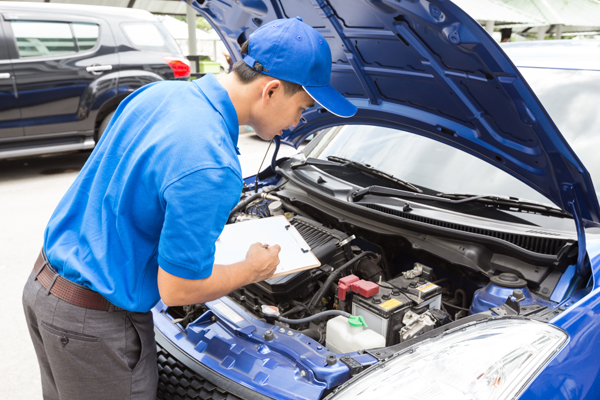- La Feria Community Holds Succesful Business Mixer Event
- Little Nashville to Take Place in Downtown Mercedes
- Lions Basketball Captures District Gold
- La Feria ISD Students Compete in Regional Chess Tournament
- Lions End First Half of 32-4A on a High Note
- La Feria ISD Held Another Successful Parent Conference
- Strong Appearance for Lions at Hidalgo Power Meet
- LFECHS Students Get to Meet Local Actress
- Students Participate in Marine Biology Camp
- Two LFECHS Students Qualify for All-State Band
Car Shopping? Get Smart About Warranties and Service Contracts
- Updated: June 22, 2018
(StatePoint) Car shopping? One important factor to consider is what each manufacturer’s warranty covers and how long the coverage lasts, as well as whether you’re going to purchase additional coverage through a vehicle service contract.
While these items can offer you peace of mind, sorting through them can be tricky. Before heading to a dealership, check out this quick look at four of the most common types of warranties and additional mechanical coverage offered on new and used vehicles.
Bumper-to-Bumper
The “basic” or “bumper-to-bumper” warranty is the most comprehensive factory warranty and covers all the original components and systems of a vehicle, excluding wear-and-tear items like tires, brake pads and wiper blades. One important area this type of warranty covers is the electrical systems. Today, vehicles are packed with electronics and computers, and repairing these can get expensive. The bumper-to-bumper warranty on a new vehicle usually lasts for three years or 36,000 miles, with some brands extending coverage to four years and 50,000 miles or five years and 60,000 miles.
Powertrain
“Powertrain” or “Drivetrain” warranties generally cover the engine, transmission and other mechanical components, and are commonly featured in vehicle ads because of their long length of coverage. Most new vehicle powertrain warranties last for five or six years, with some brands offering up to 10 years of coverage. For new hybrid electric powered vehicles, some manufacturers offer an additional warranty to cover components that are specific to these vehicles.
Corrosion
Intended to convey the quality of a vehicle, some manufacturers cover repairs for rust or premature deterioration of major sheet metal with something called a “corrosion and rust” or “body integrity” warranty. If you spend a lot of time along the coast or in areas where salt is used on the roads, this coverage can be a significant benefit. Most corrosion warranties cover the vehicle for five to seven years.
Vehicle Service Contracts
Unlike warranties provided by the manufacturer with a new car or truck, vehicle service contracts (VSCs) are purchased by the consumer from a dealership or third-party. VSC coverage can be tailored to fit a customer’s needs and budget, and can cover mechanical components, electronics and even luxury equipment like power seats or a navigation system. A VSC like Ally Premier Protection covers up to 7,400 components in a vehicle and offers additional benefits including rental reimbursement, roadside assistance, towing and reimbursement for trip interruption caused by a breakdown. Even if a vehicle is covered by a manufacturer’s warranty, customers can still use these VSC benefits. With many consumers holding onto their vehicles longer, VSCs can extend the customer’s peace-of-mind beyond the end of a manufacturer’s warranty.
For more information about new vehicle warranties visit the manufacturer’s website or local dealership. To learn more about vehicle service contracts, visit the Ally Premier Protection website at ally.com/auto/vehicle-protection.
Be a savvy consumer. Before setting foot in the dealership, learn about available warranties and vehicle service contracts that can help protect your purchase.



